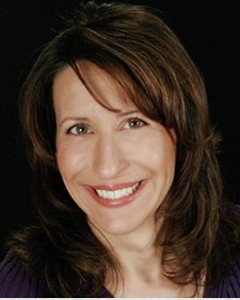Harnessing the Power and Joy of Reading
- Maria P. Walther and Carmen Agra Deedy
- Jan 1, 2019
- 2 min read
Updated: Feb 2, 2021
Literacy professionals from across the Twin Cities recently gathered at St. Kate’s University to attend the Twin Cities Area Reading Council (TCARC)/Scholastic Education’s Achievement Event with literacy experts Maria P. Walther and Carmen Agra Deedy along with Scholastic Education presenters that focused on harnessing the power and joy of reading to increase achievement for all students.
The morning event began with Maria P. Walther’s presentation entitled Peace, Joy, and Books! Creating a Vibrant Reading Community. Her ten tips to creating a vibrant reading community are:
Place Books up Front “The small things are important - what your room
Promote Books looks like, how you introduce the books, where
Know Your Readers the books are in your room....”
Know Your Books
Match Readers with Books
Teach Readers About Authors and Series Books
Introduce a Variety of Genres
Surround Students with Books: Create a Library Classroom
Provide Ample Time for Supported Reading within the Workshop Structure
Celebrate the Joy and Power of Reading
The second featured speaker was Kim Towe who spoke about Classroom Libraries: Building a Pathway to Independent Reading. Kim emphasized the importance of making sure that the books in classroom libraries are books that students want to read, books that they can read, and that students have choice in what they read. Her recommendation was that 30% of books in the classroom should have a publishing date within the last 3-5 years and that regular weeding is a must. She also suggests giving students a role in organizing and labeling the classroom library as it gives students an opportunity to browse through all of the books. “Build a library for the readers you expect, and customize it for the readers you have.”
Jenni Brasington was the third featured speaker and her topic was Building Families’ Capacity to Support Literacy at Home. She suggested that schools take a hard look at how they are engaging families as it is a practice, not an instructional strategy, and that family engagement should be viewed as a partnership between home and school. Family engagement involves regular two way communication, co-created activities, and is inclusive. Higher impact engagement strategies are:
Positive Phone Calls
Goal Setting Conversations
Regular, Personalized Conversation
Weekly Data-Sharing Folders
Home Visits
Interactive Homework and Tips/Tools for Home Learning
“Family engagement is not about doing more; it is about doing it differently.”
The morning concluded with Carmen Agra Deedy who spoke on The Words that Make Us Human: Story as a Pathway to Literacy. Carmen had the audience captivated as she told stories of her grandfather, her family, and memories from her youth. She is the author of a number of books for children. Visit carmenagradeedy.com for more information.
Overall, it was a wonderful day of literacy learning to support increased achievement for all students.
















Comments